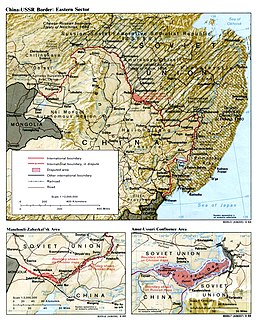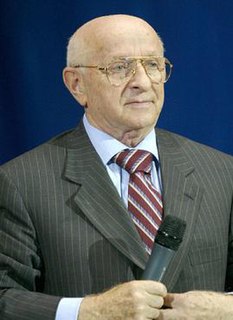A list of films produced in the Soviet Union between 1960 and 1969:
A list of films produced in the Soviet Union between 1960 and 1969:

The cinema of the Soviet Union includes films produced by the constituent republics of the Soviet Union reflecting elements of their pre-Soviet culture, language and history, albeit they were all regulated by the central government in Moscow. Most prolific in their republican films, after the Russian Soviet Federative Socialist Republic, were Armenia, Azerbaijan, Georgia, Ukraine, and, to a lesser degree, Lithuania, Belarus and Moldavia. At the same time, the nation's film industry, which was fully nationalized throughout most of the country's history, was guided by philosophies and laws propounded by the monopoly Soviet Communist Party which introduced a new view on the cinema, socialist realism, which was different from the one before or after the existence of the Soviet Union.

The 1960s was a decade of the Gregorian calendar that began on January 1, 1960, and ended on December 31, 1969.

Mosfilm is a film studio which is among the largest and oldest in the Russian Federation and in Europe. Founded in 1924 in the USSR as a production unit of that nation's film monopoly, its output includes most of the more widely acclaimed Soviet-era films, ranging from works by Andrei Tarkovsky and Sergei Eisenstein, to Red Westerns, to the Akira Kurosawa co-production Dersu Uzala and the epic War and Peace.

The Sino-Soviet border conflict was a seven-month undeclared military conflict between the Soviet Union and China in 1969, following the Sino-Soviet split. The most serious border clash, which brought the world's two largest communist states to the brink of war, occurred in March 1969 near Zhenbao (Damansky) Island on the Ussuri (Wusuli) River, near Manchuria. The conflict resulted in a ceasefire, which led to a return to the status quo.

The Czechoslovak Republic or Fourth Czechoslovak Republic existed between 1948 and 1960 in Czechoslovakia. Czechoslovak Socialist Republic was the official name of the country from 1960 to 23 April 1990. From 1948 until the end of November 1989, the country was under Communist rule and was a satellite state of the Soviet Union.
This is an index of lists of films by year, awards, countries of origin and genre among other factors.

Alexander Yakovlevich Gomelsky was a Russian professional basketball player and coach. The father of Soviet and Russian basketball, he was inducted into the Naismith Memorial Basketball Hall of Fame in 1995 and the FIBA Hall of Fame in 2007.

Anatoly Vasilievich Kuznetsov was a Russian-language Soviet writer who described his experiences in German-occupied Kyiv during World War II in his internationally acclaimed novel Babi Yar: A Document in the Form of a Novel. The book was originally published in a censored form in 1966 in the Russian language.

Cinema of Estonia is the film industry of the Republic of Estonia. The motion pictures have won international awards and each year new Estonian films are seen at film festivals around the globe.
CBS Children's Film Festival is a 1967-1984 television series of live action films from several countries that were made for children. Originally a sporadic series airing on Saturday mornings, Sunday afternoons, or weekday afternoons beginning in February 1967, it became a regularly scheduled program in 1971 on the CBS Saturday-morning lineup, running one hour with some films apparently edited down to fit the time slot. The program was hosted by 1950s television act Kukla, Fran and Ollie, a.k.a. puppeteer Burr Tillstrom and actress Fran Allison.
A list of films produced in the Soviet Union between 1917 and 1991.
Oleg Aleksandrovich Strizhenov is a Soviet and Russian film actor and a People's Artist of the USSR.

Igor Vasilyevich Talankin was a Soviet and Russian film director and screenwriter. His film Splendid Days won the Crystal Globe at the Karlovy Vary International Film Festival, and Tchaikovsky (1969) was nominated for the Academy Award for Best Foreign Language Film.

Alexander Naumovich Mitta is a Soviet and Russian film director, screenwriter and actor.

The House Committee on Un-American Activities (HCUA), popularly dubbed the House Un-American Activities Committee (HUAC) was an investigative committee of the United States House of Representatives, created in 1938 to investigate alleged disloyalty and subversive activities on the part of private citizens, public employees, and those organizations suspected of having either fascist or communist ties. It became a standing (permanent) committee in 1945, and from 1969 onwards it was known as the House Committee on Internal Security. When the House abolished the committee in 1975, its functions were transferred to the House Judiciary Committee.

Yulian Aleksandrovich Panich is a Soviet / Russian actor, director, and journalist. Honored Artist of Russia (1996).
Iskusstvo Kino is a film magazine published in Moscow, Russia. It has been published since 1931 and is one of the earliest magazines in Europe, which specialize on film theory and review, alongside the British magazine Sight & Sound and the French magazine Cahiers du Cinema.